#reproductive injustice
Text
I miss reproductive freedoms. I miss when I could've had a legal abortion in America. I just turned 18 when abortions became illegal, and I never even got to taste that freedom. Before Roe V. Wade was overturned, I was a child who had no business having sex. It wouldn't even have been about the pregnancy. And what hurts the most is that the bans aren't even for control over women - they're so people can have more ants to give to the work force.
I'm drunk right now. I'm very drunk. I can't distract myself and I sure as hell will never stand for the flag again. On top of it all, I have bad sexual trauma. I was molested by my dad and my sister, and my cousin would say he wanted to see me change my clothes. My aunt dragged him out of his bedroom once she heard him and later he said it was my fault. I was sexually harassed by a dance teacher and I still can't have anyone behind me. God damn it.
Cue to when I met this man and we started to date. I got tired of using condoms and morning after pills and decided to get birth control from the local health department. They said they had to perform a pap smear exam before they could give me birth control pills, which in theory, I understand. The issue was that I got triggered from Mr. Dance Teacher's abuse, his constant abuse. I got naked anyway, put on the plastic, paper sheet, and tried to be strong. They were smart enough to understand there was no way I could ever handle the full thing, so they did half of it. Dope.
Women are being arrested for having miscarriages who are destined to die of sepsis, because it's a natural abortion. It's miserable and dystopian, and the salt and lemon juice in the wound is that if this were written by someone slightly younger than me, they'd censor half of the words with that 80's trend where they'd switch out letters for numbers and other symbols. The thought itself is censored. This is why I get drunk, and it's why I'm awake. It infuriates me, too, that men keep catcalling me, but we can't criticize the men, can we? So we go down the street, knowing that we can't really do anything when the men say shit and say victim mentality things, until were told to man up and be a badass, as if that could fix it. The kicker is that when the men are doing the shit, the women have to suffer and go to prison when the rapists and harassers either go free or have lesser sentences.
I was a miserable child who waited for adulthood. People told me to put myself down and be a lady. You don't talk as loudly as the men. You don't talk about your skills when a man is talking about his. I waited for the day I could have a child and they could smile and have a family who loves them, who wouldn't pull their pants down and make them feel good for some reason or tell them to be a slave to men. Not this world, where even the Christian conservatives are telling their high school graduates to change the world for the better, in the context that they must erase this error.
And of all things, in Kenya, they don't have access to the same amount of abortion care as the medical facilities do in the US. They're not attacking women specifically, for the sake of making more workers. I want to live in Canada, but my boyfriend wants Kenya, where his brother in spirit lives.
Every conservative in a political seat is going after the rest of your freedoms. The conservative law makers are going after the rest of everything you take for granted. Fight them back and vote them away from their seats. Don't get apathetic and dissociate, although I understand it's hard. Ask the hard questions and don't be afraid to get angry.
Get angry. Hell, do something! Make a sign and put it in your yard or on the street. Update your profile pictures on your social media. Write books. Get a stool and yell. Don't work at jobs with bosses who have those disgusting terroristic beliefs. Yell at your grandparents who say they're saving the children. Do something.
Vote the bad people out. Vote the good people in. Stay in touch politically and educate yourself in every one of your free moments if you want your children to live a good life. Not for the sake of their lives, but for the sake of their happiness. Don't let the government make you a breeding machine who pumps out babies every nine months so you can adopt them out. They want mindless soldiers with abandonment issues who are willing to say "Yes, sir", and emptily kill because they were told to. They don't want your children to be happy, because if they did, they would help you.
Don't be the reason these incel demons get into the offices and change the whole infrastructure so they can enforce their own fascism. They're fascists. You're fighting a new Stalin. What would you do in that situation? Do it.
Now I can go to bed. I'm tired. I'm going to have to listen to music to get in a good head. I'm too buzzed and need sleep. Fight for what is right. Please help the world. Please let me sleep knowing that there is hope, that not everyone in the world just cares about work and staring at phones and counting their imaginary digital money. Please.
#abortion#politics#2024 presidential primaries#2024 elections#reproductive rights#reproductive health#reproductive justice#reproductive injustice
0 notes
Text
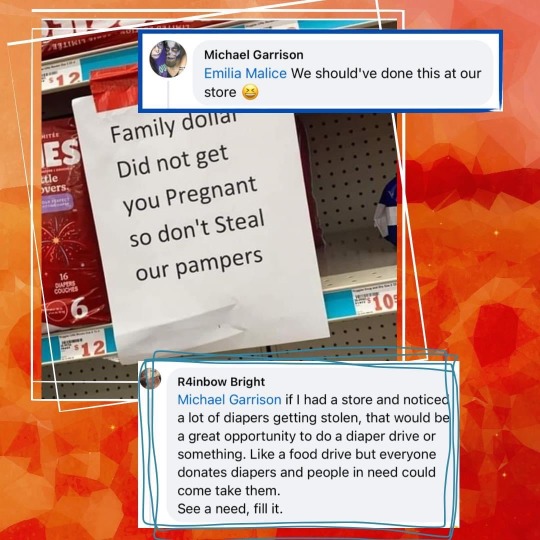
Not to mention that, frankly, abortion is currently illegal or inaccessible across way too much of the US and birth control is expensive AF, so if you want people to stop stealing baby care essentials you might do better to use your corporate power to lobby for free and accessible reproductive healthcare, frankly.
Because a lot of people stealing baby care essentials really didn’t fucking choose to be pregnant, frankly; they’re forced into it for political reasons.
Don’t get me wrong; nappy and baby care product drives are 100% useful and wonderful community responses to need. But that doesn’t stop the fact that there is a systemic political reason why theft of expensive specialist baby care items is quite common. That requires political action.
So when corporate entities attempt to turn responses to political and systemic injustices into a personal responsibility and blame game, I’m always going to remind them of the systemic reasons, and suggest they use their corporate power to tackle it.
It also underlines how much political decisions in putative democracies (the US is bad for it but FAR from the only culprit) are affected by corporate interests and corporate lobbying. Which is necessary AF.
#us politics#reproductive rights#reproductive justice#systemic oppression#assholes attempting to hide systemic responses to injustice behind personal responsibility bs again#corporate capitalism#mutual aid
47 notes
·
View notes
Text
abortion rights!
youtube
#Abortion rights#reproductive rights#snl#nbc snl#abortion right are healthcare#bodily autonomy#Youtube#Injustice alito#samuel alito#shame on these religious nuts
9 notes
·
View notes
Text
i mean nona gave us a lot in the way of easily-missed offhand trivia but i think ob/gyn mercymorn was maybe the most everything of all of it. of course she was. children as fists. infants as gestures. yuck. pfaugh.
#like i'm going insane about her. ''i will not tolerate a plan that incorporates reproductive injustice'' good lord.#gesturing frantically at dios apate major and making incoherent noises. a myriad is a very long time.#rhi talks#the locked tomb#mercymorn the first#books#and like i mean of course she was. of course that was where god's anatomist saint came from. of course.#you can assemble a horde of surgeons and every one of them will know a few square feet of the body like the back of their hand#but if you want to know how kidneys split and skulls calcify and dorsal nerves unfurl from the spinal column then where are you gonna go#but an ob/gyn.#*tearily* mercymorn... marlene... maria.. whatever the fuck your name was. i love you
51 notes
·
View notes
Text
#reproductive rights#injustice#el salvador#feminism#misogyny#abortion bans#classism#reproductive justice
3 notes
·
View notes
Text
A baby died of lack of nutrients because the nutrition her mom received was horrendous.
Before you judge, please watch the video.
https://youtu.be/6y9EnMehkqc
#prison abolition#abolish prisons#prison#baby#birth#motherhood#death#nutrition#health#drlivery#childbirth#crime#neglect#food#nutruents#injustice#social justice#equality#inequality#reproductive justice#and justice for all#criminal justice#justice#parents#parenthood#united states of america#america#united states#usa
3 notes
·
View notes
Text
I don't think there is a significant or notable number of people who believe transmascs are not oppressed.
I feel slightly insane just having to type this out, but this is rhetoric you inevitably come across if you discuss transfeminism on Tumblr.
The mainstream, cissexist understanding of transmasculine people is the Irreversible Damage narrative (one that's old enough to show up in Transsexual Empire as well) of transmascs as "misguided little girls", "tricked" into "mutilating themselves". It is a deliberately emasculating and transphobic narrative that very explicitly centers on oppression, even if the fevered imaginings misattribute the cause. As anyone who's dealt with the gatekeeping medical establishment knows, they are far from giving away HRT or even consults with both hands, and most transfems I know have a hard enough time convincing people to take DIY T advice, leave alone "tricking" anyone into top surgery.
Arguably, the misogyny that transmasculine folks experience is the defining narrative surrounding their existence, as transmasculinity is frequently and erroneously attributed to "tomboyish women" who resent their position in the patriarchy so much they seek to transition out of it. This rhetoric is an invisiblization of transmasculinity, constructed deliberately to preserve gendered verticality, for if it were possible to "gain status" under the sexed regime, its entire basis, its ideological naturalization, would fall apart.
Honestly, the actual discussions I see are centered around whether "transmisogyny" is a term that should apply to transmascs and transfems alike. While I understand the impetus for that discussion, I feel like the assertion that transmisogyny is a specific oppression that transfems experience for our perceived abandonment of the "male sex" is often conflated with the incorrect idea that we believe transmasculine people are not oppressed at all. This is not true, and we understand, rather acutely, that our society is entirely organized around reproductive exploitation. That is, in fact, the source of transfeminine disposability!
I know I'm someone who "just got here" and there is a history here that I'm not a part of, but so much of that history is speckled with hearsay and fabrication that I can't even attempt to make sense of it. All I know is that I, in 2024, have been called a revived medieval slur for effeminate men by people who attribute certain beliefs to me based on my being a trans woman who is also a feminist, and I simply do not hold those views, nor do I know anyone who sincerely does.
If you're going to attempt to discredit a transfeminist, or transfeminism in general, then please at least do us the courtesy of responding to things we actually say and have actually argued instead of ascribing to us phantom ideologies in a frankly conspiratorial fashion. I also implore people to pay attention to how transphobic rhetoric operates out in the wider world, how actual reactionaries talk about and think of trans people, instead of fixating so hard on internecine social media clique drama that one enters an alternate reality--a phantasm, as Judith Butler would put it.
Speaking of which--do y'all have any idea how overrepresented transmascs are in trans studies and queer theory? Can we like, stop and reckon with reality-as-it-is, instead of hallucinating a transfeminine hegemony where it doesn't exist? I'm aware a lot of their output isn't particularly explicative on the material realities of transmasculine oppression despite their prominence in the academy, but that is ... not the fault of trans women, who face extremely harsh epistemic injustice even in trans studies.
The actual issue is how invisiblized transmasculine oppression is and how the epistemicide that transmasculine people face manifests as a refusal to differentiate between the misogyny all women face, reproductive exploitation in particular, and the contours of violence, erasure, and oppression directed at specifically transmasculine people.
You will notice that is a society-wide problem, motivated by a desire to erase the possibilities of transmasculinity, to the point of not even being willing to name it. You will notice that I am quite familiar with how this works, and how it's completely compatible with a materialist transfeminist framework that analyzes how our oppression is--while distinct--interlinked and stems from the same root.
I sincerely hope that whoever needs to see this post sees it, and that something productive--more productive dialogue, at least--can arise from it.
#transfeminism#gender is a regime#materialist feminism#lesbian feminism#sex is a social construct#social constructionism#feminism#transmisogyny#anti transmasculinity#transphobia#erasure#epistemic injustice#epistemicide#queer theory#queer studies#queer academia
2K notes
·
View notes
Text
What the fuck! what the fuck! WHAT THE ACTUAL FUCK?!
"South Carolina Republican lawmakers recently introduced a bill that would make abortion punishable by death.
This draconian bill literally considers abortion an act of homicide. Such an extreme and dangerous measure taken by Republicans should not be considered the norm. We must urge all other co-sponsors to pull their support of the bill! Sign the petition to urge all co-sponsors of the bill to revoke their support of this dangerous and unprecedented bill!"
#injustice #freechoice #womensrights
#injustice#women's rights#war on women#reproductive rights#urgent petition#republican bullshit#human rights violations#right to abortion#abortion#south carolina#wtf
1 note
·
View note
Text
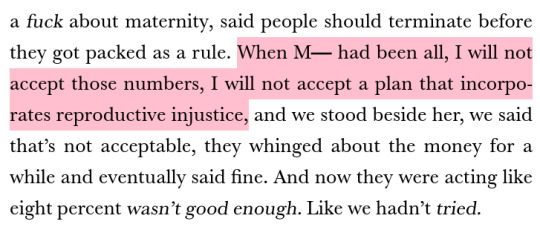


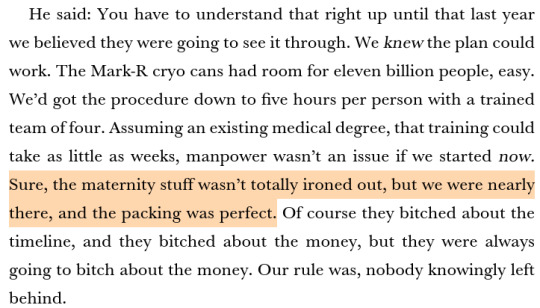

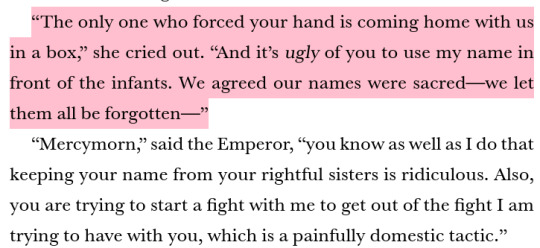



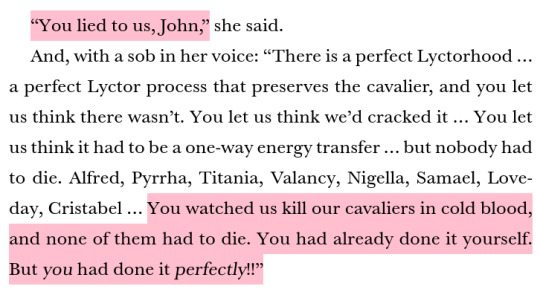


Nona the Ninth / Harrow the Ninth + reproduction, infancy, injustice
#the locked tomb#mercymorn the first#harrowhark nonagesimus#john gaius#nona the ninth#nona#hi is anyone with me. does Anyone else see the vision. hello for the love of god#iasip pepe silvia.png#there's more i could include but it's already sooo long#mine#meta
581 notes
·
View notes
Text
It's amazing how much incidental and easy-to-miss queerness tazmuir manages to pack into the Fourth House section of the Cohort Intelligence Files at the end of GtN.
"Sir Jeannemary Chatur" is a cool vibe and easy to spot, but it's worth taking a close look at Judith's notes on Isaac too:
Abigail Pent has forged a strong relationship with both Tettares and Chatur, much stronger even than her mothers’ relationship with Tettares’ father. It is already suggested that her nephew will be affianced to him once they are of age.
Firstly, "mothers'" (not "mother's"), indicating that Abigail has two moms - this is subtle enough that I missed it in all 5 or so of my prior readings.
Second, and more complicatedly, that Abigail is planning to have Isaac marry her nephew. On the surface of it, this seems cool - my initial reading was that Isaac is gay, and Abigail wants him to have a spouse who he has some chance of being interested in. But given that this is in the context of an arranged marriage between aristocratic families, we should also consider the reproductive lens (especially given the mention of his siblings being "a mix of vat-womb and XX carry" in the preceding paragraph) - I think a more compelling reading of this passage is actually that Isaac is trans¹ (or Abigail's nephew is). And tugging on this thread takes us to a bit of a dark place.
Given how much the Fourth and Fifth evidently care about the heredity of their rulers, we can infer that someone in Isaac's position wouldn't have any real reproductive autonomy even if he had survived to adulthood. And while the existence of vat wombs obviates the horror of forced pregnancy/childbirth, this is still a pretty fucked up situation (to say nothing of the Ninth where they don't even have access to vat wombs). To me, this signifies a fundamental injustice of organising society around hereditary nobility; one that persists even if it can be made to be superficially gay- and trans-inclusive.
With this in mind it's worth interrogating my use of the word "queerness" at the beginning of the post. In the real world "queer" is viable as an umbrella term for all the many LGBTQIA+ identities specifically because those identities are all at odds with the cis-/hetero-/etc.-normative nature of our society. But in the Nine Houses it doesn't seem like being gay/bisexual/trans is stigmatised in the same way, so one could say that these identities are not "queer" per se (strange, other) in a diegetic context.
"Sir Jeannemary Chatur" reflects a similar mismatch. In the real world, a woman using the title "sir" is at odds with both traditional gender roles and (more significantly) institutional usage of the title. But in the Nine Houses this title seems to be devoid of any specific gendered connotations, and its application to Jeannemary is not a subversion of that society's gender norms, but instead an affirmation of the (normative, exploitative) social role of cavalier.
So in summary: Isaac is trans, what queerness means in the Nine Houses can be quite different from what it means in the real world, and pinkwashing an unjust society doesn't make it more just (even if it's headed by a queer person).
¹ This isn't to say that Isaac isn't gay - I headcanon him as both gay and trans. But I don't think him being married off to Abigail's nephew is (primarily) about his sexual orientation.
PS: If you like being haunted by the ghosts of these characters, check out @katakaluptastrophy's fic, Your children are weapons, which got me thinking about these two again lately.
418 notes
·
View notes
Photo

Things We Care About
Well, Tumblr, 2022 was another big year for speaking up and supporting each other. In the past year, you took action, turned art into activism, and made your voices heard, often in support of others. We’ve analyzed your top tags and posts to determine what mattered to you in the last year.
When Ukraine was invaded, you showed your support. You continue to #stand with Ukraine, create for Ukraine, and honor Ukrainian artists caught in the crossfires.
Throughout the year, you shared many messages of body positivity and encouragement, held 5,879,971 private exchanges with @kokobot (yes, you and kokobot rlly r bestiez), and sent an inconceivable amount of anonymous, personalized messages of reassurance to each other.
You celebrated Pride with plenty of wholesome artistic offerings and showed solidarity with your peers all over the world. You stood up against the Don’t Say Gay bill in Florida and informed each other on how to vote against trans-exclusionary policies across America. When Rebel Wilson and Kit Conner were both pressured into coming out, you supported them, commiserated with them, and came to the defense of anyone who's ever been pressured to do so.
When Mahsa Amini was killed, you spoke out and posted in support of protests in Iran, learning about and spreading awareness of what women, girls, and protestors endure in the name of tradition in Iran.
When Roe v. Wade was overturned, you shared countless resources for those affected by reproductive rights infringement in the US, again turning to art as a means to share stories and ignite action. You commemorated the victims of the Uvalde shooting, saying enough is enough when it comes to gun-related violence in America. You turned your rage into art that inspires and nudged others to make their voices heard at the US polls.
You reminded users that the “civil rights movement isn’t as “ancient” as we’re taught in class,” that Black lives still matter, and always will matter. You celebrated Black Joy and Black Excellence, illuminating stories of resilience in the face of racial injustice.
You celebrated your Indigenous culture and took a stand for the preservation of Indigenous lands.
You continued to be planet-conscious by sharing ideas, resources, and knowledge of mending and making, and celebrated conservation efforts along the way.
And finally, under the continued stresses of COVID, you looked to the future with resilience, turning pain and uncertainty into hope and connection.
And that’s definitely something to be proud of. What will you stand for in 2023?
3K notes
·
View notes
Text
Heroes, Gods, and the Invisible Narrator
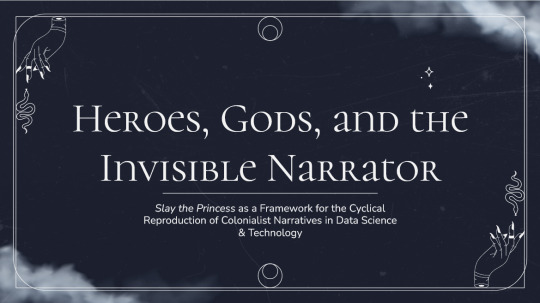
Slay the Princess as a Framework for the Cyclical Reproduction of Colonialist Narratives in Data Science & Technology
An Essay by FireflySummers
All images are captioned.
Content Warnings: Body Horror, Discussion of Racism and Colonialism
Spoilers for Slay the Princess (2023) by @abby-howard and Black Tabby Games.
If you enjoy this article, consider reading my guide to arguing against the use of AI image generators or the academic article it's based on.

Introduction: The Hero and the Princess
You're on a path in the woods, and at the end of that path is a cabin. And in the basement of that cabin is a Princess.
You're here to slay her.
If you don't, it will be the end of the world.
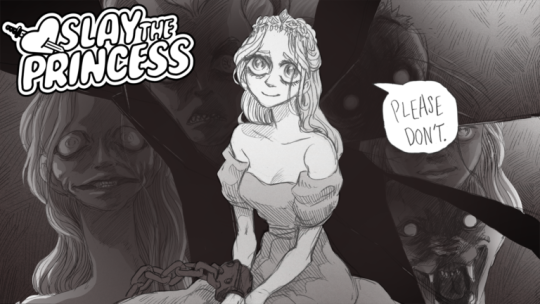
Slay the Princess is a 2023 indie horror game by Abby Howard and published through Black Tabby Games, with voice talent by Jonathan Sims (yes, that one) and Nichole Goodnight.
The game starts with you dropped without context in the middle of the woods. But that’s alright. The Narrator is here to guide you. You are the hero, you have your weapon, and you have a monster to slay.
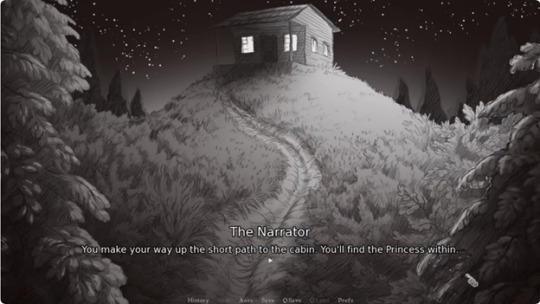
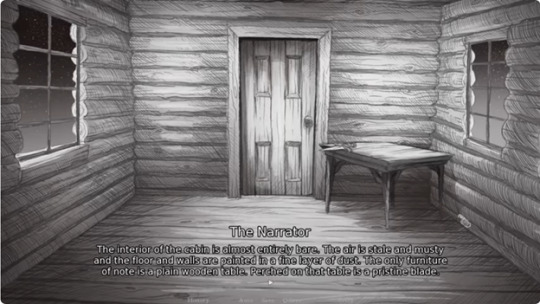
From there, it's the player's choice exactly how to proceed--whether that be listening to the voice of the narrator, or attempting to subvert him. You can kill her as instructed, or sit and chat, or even free her from her chains.
It doesn't matter.
Regardless of whether you are successful in your goal, you will inevitably (and often quite violently) die.
And then...
You are once again on a path in the woods.
The cycle repeats itself, the narrator seemingly none the wiser. But the woods are different, and so is the cabin. You're different, and worse... so is she.
Based on your actions in the previous loop, the princess has... changed. Distorted.
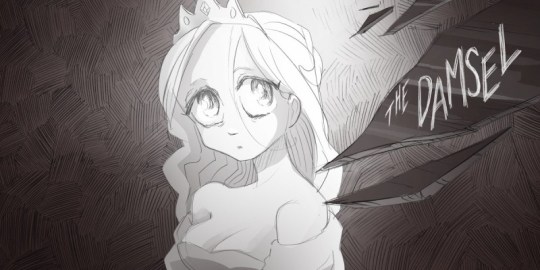
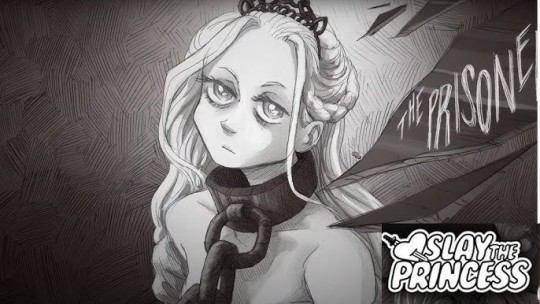
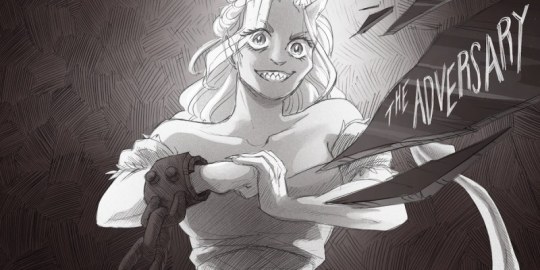
Had you attempted a daring rescue, she is now a damsel--sweet and submissive and already fallen in love with you.
Had you previously betrayed her, she has warped into something malicious and sinister, ready to repay your kindness in full.
But once again, it doesn't matter.
Because the no matter what you choose, no matter how the world around you contorts under the weight of repeated loops, it will always be you and the princess.
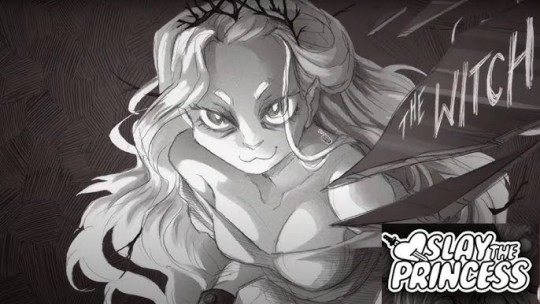
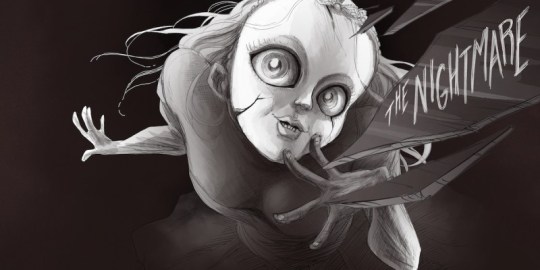
Why? Because that’s how the story goes.
So says the narrator.
So now that we've got that out of the way, let's talk about data.

Chapter I: Echoes and Shattered Mirrors
The problem with "data" is that we don't really think too much about it anymore. Or, at least, we think about it in the same abstract way we think about "a billion people." It's gotten so big, so seemingly impersonal that it's easy to forget that contemporary concept of "data" in the west is a phenomenon only a couple centuries old [1].
This modern conception of the word describes the ways that we translate the world into words and numbers that can then be categorized and analyzed. As such, data has a lot of practical uses, whether that be putting a rover on mars or tracking the outbreak of a viral contagion. However, this functionality makes it all too easy to overlook the fact that data itself is not neutral. It is gathered by people, sorted into categories designed by people, and interpreted by people. At every step, there are people involved, such that contemporary technology is embedded with systemic injustices, and not always by accident.
The reproduction of systems of oppression are most obvious from the margins. In his 2019 article As If, Ramon Amaro describes the Aspire Mirror (2016): a speculative design project by by Joy Buolamwini that contended with the fact that the standard facial recognition algorithm library had been trained almost exclusively on white faces. The simplest solution was to artificially lighten darker skin-tones for the algorithm to recognize, which Amaro uses to illustrate the way that technology is developed with an assumption of whiteness [2].
This observation applies across other intersections as well, such as trans identity [3], which has been colloquially dubbed "The Misgendering Machine" [4] for its insistence on classifying people into a strict gender binary based only on physical appearance.

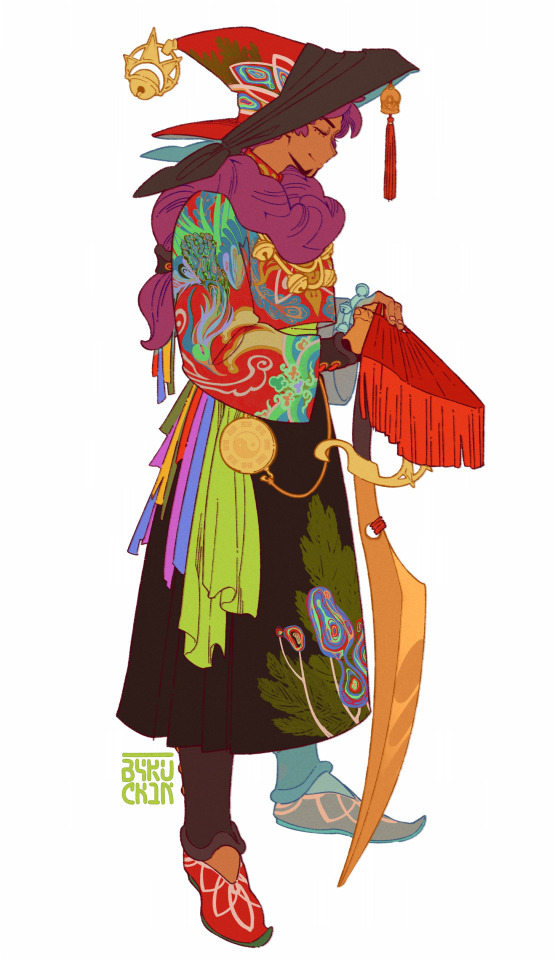
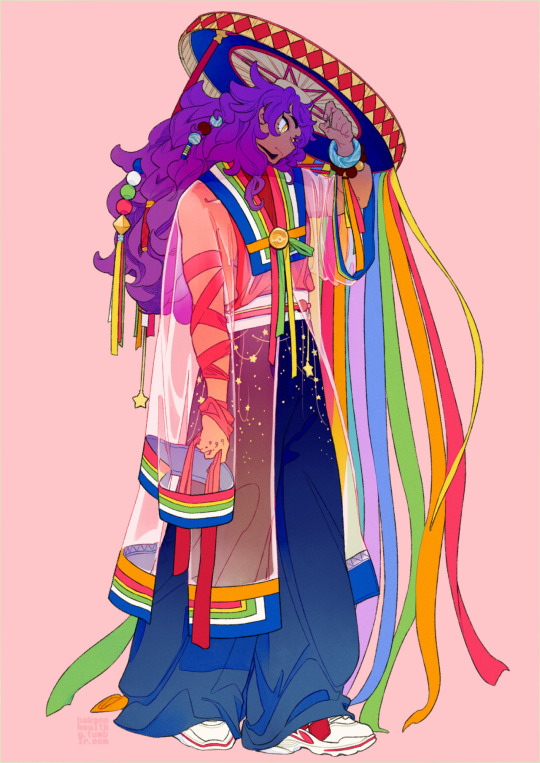
This has also popped up in my own research, brought to my attention by the artist @b4kuch1n who has spoken at length with me about the connection between their Vietnamese heritage and the clothing they design in their illustrative work [5]. They call out AI image generators for reinforcing colonialism by stripping art with significant personal and cultural meaning of their context and history, using them to produce a poor facsimile to sell to the highest bidder.
All this describes an iterative cycle which defines normalcy through a white, western lens, with a limited range of acceptable diversity. Within this cycle, AI feeds on data gathered under colonialist ideology, then producing an artifact that reinforces existing systemic bias. When this data is, in turn, once again fed to the machine, that bias becomes all the more severe, and the range of acceptability narrower [2, 6].

Luciana Parisi and Denise Ferreira da Silva touch on a similar point in their article Black Feminist Tools, Critique, and Techno-poethics but on a much broader scale. They call up the Greek myth of Prometheus, who was punished by the gods for his hubris for stealing fire to give to humanity. Parisi and Ferreira da Silva point to how this, and other parts of the “Western Cosmology” map to humanity’s relationship with technology [7].
However, while this story seems to celebrate the technological advancement of humanity, there are darker colonialist undertones. It frames the world in terms of the gods and man, the oppressor and the oppressed; but it provides no other way of being. So instead the story repeats itself, with so-called progress an inextricable part of these two classes of being. This doesn’t bode well for visions of the future, then–because surely, eventually, the oppressed will one day be the machines [7, 8].
It’s… depressing. But it’s only really true, if you assume that that’s the only way the story could go.
“Stories don't care who takes part in them. All that matters is that the story gets told, that the story repeats. Or, if you prefer to think of it like this: stories are a parasitical life form, warping lives in the service only of the story itself.”
― Terry Pratchett, Witches Abroad

Chapter II: The Invisible Narrator
So why does the narrator get to call the shots on how a story might go? Who even are they? What do they want? How much power do they actually have?
With the exception of first person writing, a lot of the time the narrator is invisible. This is different from an unreliable narrator. With an unreliable narrator, at some point the audience becomes aware of their presence in order for the story to function as intended. An invisible narrator is never meant to be seen.
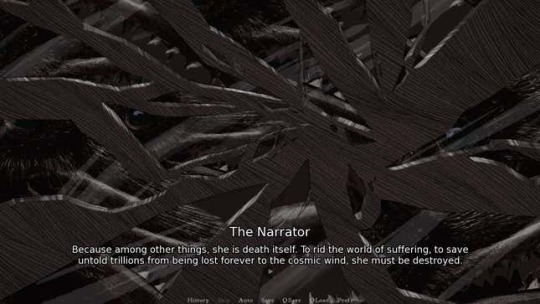
In Slay the Princess, the narrator would very much like to be invisible. Instead, he has been dragged out into the light, because you (and the inner voices you pick up along the way), are starting to argue with him. And he doesn’t like it.
Despite his claims that the princess will lie and cheat in order to escape, as the game progresses it’s clear that the narrator is every bit as manipulative–if not moreso, because he actually knows what’s going on. And, if the player tries to diverge from the path that he’s set before them, the correct path, then it rapidly becomes clear that he, at least to start, has the power to force that correct path.
While this is very much a narrative device, the act of calling attention to the narrator is important beyond that context.

The Hero’s Journey is the true monomyth, something to which all stories can be reduced. It doesn’t matter that the author, Joseph Campbell, was a raging misogynist whose framework flattened cultures and stories to fit a western lens [9, 10]. It was used in Star Wars, so clearly it’s a universal framework.
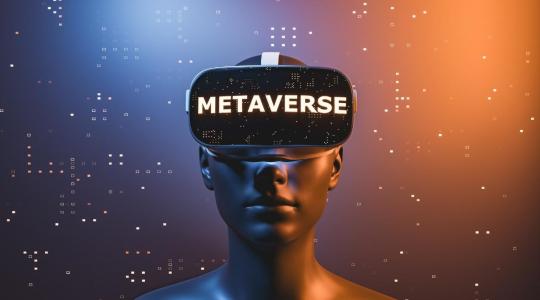


The metaverse will soon replace the real world and crypto is the future of currency! Never mind that the organizations pushing it are suspiciously pyramid shaped. Get on board or be left behind.
Generative AI is pushed as the next big thing. The harms it inflicts on creatives and the harmful stereotypes it perpetuates are just bugs in the system. Never mind that the evangelists for this technology speak over the concerns of marginalized people [5]. That’s a skill issue, you gotta keep up.
Computers will eventually, likely soon, advance so far as to replace humans altogether. The robot uprising is on the horizon [8].
Who perpetuates these stories? What do they have to gain?
Why is the only story for the future replications of unjust systems of power? Why must the hero always slay the monster?
Because so says the narrator. And so long as they are invisible, it is simple to assume that this is simply the way things are.

Chapter III: The End...?
This is the part where Slay the Princess starts feeling like a stretch, but I’ve already killed the horse so I might as well beat it until the end too.
Because what is the end result here?
According to the game… collapse. A recursive story whose biases narrow the scope of each iteration ultimately collapses in on itself. The princess becomes so sharp that she is nothing but blades to eviscerate you. The princess becomes so perfect a damsel that she is a caricature of the trope. The story whittles itself away to nothing. And then the cycle begins anew.
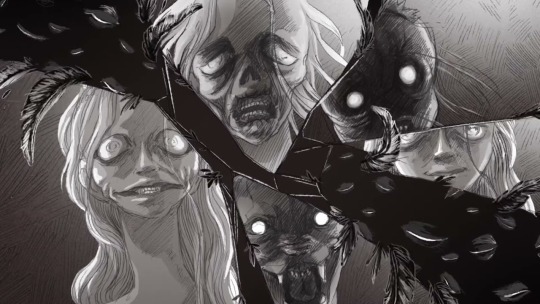
There’s no climactic final battle with the narrator. He created this box, set things in motion, but he is beyond the player’s reach to confront directly. The only way out is to become aware of the box itself, and the agenda of the narrator. It requires acknowledgement of the artificiality of the roles thrust upon you and the Princess, the false dichotomy of hero or villain.
Slay the Princess doesn’t actually provide an answer to what lies outside of the box, merely acknowledges it as a limit that can be overcome.
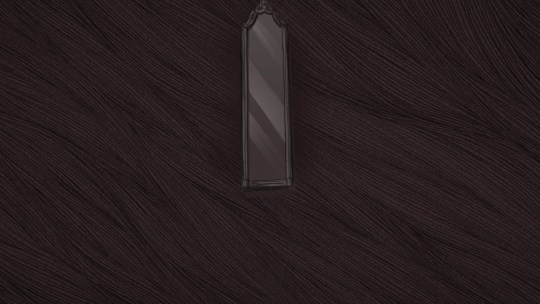
With regards to the less fanciful narratives that comprise our day-to-day lives, it’s difficult to see the boxes and dichotomies we’ve been forced into, let alone what might be beyond them. But if the limit placed is that there are no stories that can exist outside of capitalism, outside of colonialism, outside of rigid hierarchies and oppressive structures, then that limit can be broken [12].

Denouement: Doomed by the Narrative
Video games are an interesting artistic medium, due to their inherent interactivity. The commonly accepted mechanics of the medium, such as flavor text that provides in-game information and commentary, are an excellent example of an invisible narrator. Branching dialogue trees and multiple endings can help obscure this further, giving the player a sense of genuine agency… which provides an interesting opportunity to drag an invisible narrator into the light.
There are a number of games that have explored the power differential between the narrator and the player (The Stanley Parable, Little Misfortune, Undertale, Buddy.io, OneShot, etc…)
However, Slay the Princess works well here because it not only emphasizes the artificial limitations that the narrator sets on a story, but the way that these stories recursively loop in on themselves, reinforcing the fears and biases of previous iterations.
Critical data theory probably had nothing to do with the game’s development (Abby Howard if you're reading this, lmk). However, it works as a surprisingly cohesive framework for illustrating the ways that we can become ensnared by a narrative, and the importance of knowing who, exactly, is narrating the story. Although it is difficult or impossible to conceptualize what might exist beyond the artificial limits placed by even a well-intentioned narrator, calling attention to them and the box they’ve constructed is the first step in breaking out of this cycle.
“You can't go around building a better world for people. Only people can build a better world for people. Otherwise it's just a cage.”
― Terry Pratchett, Witches Abroad

Epilogue
If you've read this far, thank you for your time! This was an adaptation of my final presentation for a Critical Data Studies course. Truthfully, this course posed quite a challenge--I found the readings of philosophers such as Kant, Adorno, Foucault, etc... difficult to parse. More contemporary scholars were significantly more accessible. My only hope is that I haven't gravely misinterpreted the scholars and researchers whose work inspired this piece.
I honestly feel like this might have worked best as a video essay, but I don't know how to do those, and don't have the time to learn or the money to outsource.
Slay the Princess is available for purchase now on Steam.
Screencaps from ManBadassHero Let's Plays: [Part 1] [Part 2] [Part 3] [Part 4] [Part 5] [Part 6]
Post Dividers by @cafekitsune
Citations:
Rosenberg, D. (2018). Data as word. Historical Studies in the Natural Sciences, 48(5), 557-567.
Amaro, Ramon. (2019). As If. e-flux Architecture. Becoming Digital. https://www.e-flux.com/architecture/becoming-digital/248073/as-if/
What Ethical AI Really Means by PhilosophyTube
Keyes, O. (2018). The misgendering machines: Trans/HCI implications of automatic gender recognition. Proceedings of the ACM on human-computer interaction, 2(CSCW), 1-22.
Allred, A.M., Aragon, C. (2023). Art in the Machine: Value Misalignment and AI “Art”. In: Luo, Y. (eds) Cooperative Design, Visualization, and Engineering. CDVE 2023. Lecture Notes in Computer Science, vol 14166. Springer, Cham. https://doi.org/10.1007/978-3-031-43815-8_4
Amaro, R. (2019). Artificial Intelligence: warped, colorful forms and their unclear geometries.
Parisisi, L., Ferreira da Silva, D. Black Feminist Tools, Critique, and Techno-poethics. e-flux. Issue #123. https://www.e-flux.com/journal/123/436929/black-feminist-tools-critique-and-techno-poethics/
AI - Our Shiny New Robot King | Sophie from Mars by Sophie From Mars
Joseph Campbell and the Myth of the Monomyth | Part 1 by Maggie Mae Fish
Joseph Campbell and the N@zis | Part 2 by Maggie Mae Fish
How Barbie Cis-ified the Matrix by Jessie Gender
#slay the princess#stp spoilers#stp#stp princess#abby howard#black tabby games#academics#critical data studies#computer science#technology#hci#my academics#my writing#long post
233 notes
·
View notes
Text
Who's Afraid of Gender by Judith Butler
goodreads

From a global icon, a bold, essential account of how a fear of gender is fueling reactionary politics around the world.
Judith Butler, the groundbreaking thinker whose iconic book Gender Trouble redefined how we think about gender and sexuality, confronts the attacks on “gender” that have become central to right-wing movements today. Global networks have formed “anti-gender ideology movements” that are dedicated to circulating a fantasy that gender is a dangerous, perhaps diabolical, threat to families, local cultures, civilization―and even “man” himself. Inflamed by the rhetoric of public figures, this movement has sought to nullify reproductive justice, undermine protections against sexual and gender violence, and strip trans and queer people of their rights to pursue a life without fear of violence.
The aim of Who’s Afraid of Gender? is not to offer a new theory of gender but to examine how “gender” has become a phantasm for emerging authoritarian regimes, fascist formations, and transexclusionary feminists. In their vital, courageous new book, Butler illuminates the concrete ways that this phantasm of “gender” collects and displaces anxieties and fears of destruction. Operating in tandem with deceptive accounts of “critical race theory” and xenophobic panics about migration, the anti-gender movement demonizes struggles for equality, fuels aggressive nationalism, and leaves millions of people vulnerable to subjugation.
An essential intervention into one of the most fraught issues of our moment, Who’s Afraid of Gender? is a bold call to refuse the alliance with authoritarian movements and to make a broad coalition with all those whose struggle for equality is linked with fighting injustice. Imagining new possibilities for both freedom and solidarity, Butler offers us a hopeful work of social and political analysis that is both timely and timeless―a book whose verve and rigor only they could deliver.
Mod opinion: I haven't gotten around to reading this yet, but my girlfriend owns a copy and I am So excited for when I get around to it!
#who's afraid of gender#whos afraid of gender#judith butler#polls#trans books#trans lit#trans literature#lgbt books#lgbt lit#lgbt literature#own voices#nonfiction#feminism#philosophy#gender studies#queer studies#to read
60 notes
·
View notes
Text
The Sexed Regime, or: You Probably Have the Wrong Critiques of "TME/TMA" Terminology
Let's begin by looking at an interesting dichotomy.


There's an oddly pervasive idea in queer spaces that a truly progressive trans or post-gender politic underscores the irrelevance of sex. In contrast to patriarchal society's utter fixation on "natal sex", queer existence must be transcendent, a space in which one's bodily configuration is understood to be entirely under one's purview, where presentation is simply something we inhabit and implies nothing about our sexualities or embodiments. It is an idea of emancipation rooted in agnosticism, an anti-patriarchal revolution spurred by the lack of belief in our cissexist society's deranged emphasis on knowing what's in our pants at all times.
It's a very appealing idea, I'll admit.
Here's the thing, though.
The naturalization of sex is the foundation of patriarchy, as well as the basis of the heterosexual regime it instantiates. Humanity is cleft in twain, with one sex marked for reproductive-sexual exploitation by the other. Like most other regimes, this one is also powered by belief--belief in the superiority of the 'male sex', the unfitness of the 'female sex', and most of all: absolute belief that sex is immutable, exhaustively binary, and non-overlapping.
What this also means, ultimately, is that those of us who dare to desert the sex we were conscripted into face different pressures and violence. It is obvious that many trans people are also subject to reproductive injustice, as cis women are, and consequently the transphobia they face is very acutely a regendering impulse, a patriarchal desire to drag them back to the confines of womanhood to fulfill their patriarchal purpose. There is, understandably, a certain amount of solidarity between cis women and trans people who have suffered these aspects of the heterosexual regime.
This is in fact the understanding that gives rise to even liberal-progressive uses of 'male socialization' directed at transfems. Trans women are understood to have been spared certain excesses of misogynistic violence and therefore expected to see and approach the world differently. It is simply a neutral observation, of course, no judgment behind it ... well, until it comes time to deny trans women epistemic authority over experiences of misogyny or womanhood, even their own. After all, can transfems really be said to have a full understanding of patriarchy? They weren't 'raised AFAB'!
Oftentimes, this becomes a double bind of proving that transfems did experience trauma, feminization, and abuse even pretransition, often as children, which is then usually dismissed as "trauma dumping" or "equating womanhood to being abused"--despite the minimization of our experiences being predicated on our "lesser" understanding of the trauma of being "misogyny-affected". So let's not retread that.
Instead, I'll point out that people assume a symmetry, a complementarian equivalence, almost, between the experiences of trans people. What I would like to stress is that there is no such thing as a coherent "AMAB" class or a shared "AMAB solidarity" based on shared experiences of oppression, because I have some shocking news that readers may wish to sit down for:
Trans women are oppressed by cis men.
Cis men are overwhelmingly the ones who rape us, beat us, kill us, and seek to abuse us. When we were children, we were bullied and violated for our perceived effeminacy, largely by the cis boys we were most proximate to. Most of us have been around cis men when they've voiced their most dehumanizing, misogynistic thoughts about women, and have been punished for not participating in these rituals of misogynistic rhetoric, too. The trauma of our upbringing involves being locked into spaces with those who sniffed out our differences, our non-conformance, and routinely punished us for being deviant. When we grow up, they are the ones who largely continue to prey on us.
The chief characteristic of transmisogyny is the presumed artificiality of trans womanhood, the idea that we are mimetics, and our womanhood is a farce, a costume whose only purpose is sexual. This dovetails with our disposability--our inability to be women who can bear children, further patrilineality, and secure what minuscule respectability is afforded to the domestically-confined women who continue the male line. As such, our hyperfetishization marks us for extreme violence, as sexual objects that can be freely used and discarded, guilt-free, because after all ... We asked for it.
Why would we "choose" womanhood if we did not want this?
Which, ultimately, brings me to my point: Sex is a social regime of difference imposed on us, but it is, unfortunately, a regime still in existence. My sex is the basis upon which my womanhood is denied and my disposability justified, because the transfeminized are degendered--we are not, as a rule, provided a path "back" to manhood. Our "effeminacy" ensures that we are 'failed' men, because gender is ultimately hierarchal. Losing status, being unmanned, is frankly trivial, and is what underlies the oppression of queer men--trans men included. Most of us are ultimately subject to some kind of degendering, largely due to how a patriarchal society regards those who defy the reproductive mandate, but transmisogyny is a specific manifestation of degendering that trans women experience.
"TME/TMA" may well be an imperfect categorization--all undertakings in boundary formation are imprecise, though not always violent, given that we need descriptive terms to communicate--but the real issue with it is that it's an overly-ponderous and ultimately clunky terminology for the frank reality that the binary sex imposed on us shapes the contours of the violence we experience. I have never experienced the specific kind of misogyny that sees me as nothing but a broodmare, because I'm a filthy troon, that dehumanized abject thing whose only purpose is absorbing (sexual) violence. Yet the acknowledgment that transfems experience forms of violence that others do not--or sometimes, even the acknowledgment that transfems face violent misogyny at all--is much less forthcoming.
Our struggles are indelibly connected, of course, stemming from the same source and promulgated by the same regime that seeks to define us as nothing more than male property. The shape of each is distinct, however, and because people frequently misunderstand the shape of mine, the idea that my struggles are even connected to theirs, that I experience misogynistic violence homoousian with that which they experience, is frequently dismissed, or considered outright offensive.
This is why I talk and write about transmisogyny, and why more people need to become more familiar with how the naturalization of sex and the regime of heterosexuality under patriarchy necessitates our common struggle.
And unfortunately, in order to properly express these ideas, we do need to talk about the regime of sex.
#transfeminism#gender is a regime#materialist feminism#lesbian feminism#sex is a social construct#social constructionism#feminism#transmisogyny#transphobia#degendering#regendering#anti transmasculinity
1K notes
·
View notes
Text
“The workers tell HuffPost they cannot in good conscience vote for Biden in the 2024 election given his ardent support for Israel. Nearly every worker, including those at Planned Parenthood, said they wished big reproductive rights organizations, which have the ability to endorse and help fund presidential candidates, had used their political power to demand a Democratic candidate that was a stronger advocate for abortion rights.
... Biden’s halfhearted support for abortion access had already soured many of the workers on his administration. Many said they can no longer support a candidate who barely says the word ‘abortion’ and is working to restore a status quo that never gave marginalized people abortion access to begin with. Some said that Biden’s policy stance on immigration also contributed to their decision to not vote for him in November. Everyone said that Gaza was the last straw.
... Many of the U.S. workers became emotional when discussing what they described as genocide in the Gaza Strip. They told HuffPost they can’t ignore the racist history of the reproductive rights movement. ‘The truth is it plays right into our movement’s history of participating in reproductive coercion, injustice and genocide,’ the reproductive rights leader who has met with the Biden administration told HuffPost, referring to the sterilization of Puerto Rican women who sought contraception and the experimentation on Black women’s bodies to create modern gynecological care. ‘What I see is our movement’s history repeating itself, and that is so dangerous.’
‘We’re not going to talk about the entire generations of Palestinians who are dead so, what, this man can stay in office?’”
115 notes
·
View notes
Note
Hello!
Can I request a sequel to Phosphophylite reader and the hazbin hotel crew ?
In the case of Charlie and Vaggie, reader comes with them to heaven. She meets Sera, Emily, Adam, and Lute. The angels are surprised to see a gem here, because the angels created a special place on earth for them, safe and away from humanity. During the trial, reader tries to help Charlie, but is so angry at the angels that she breaks her leg by stomping too hard and fall, breaking an arm and cracking her head.
For Angel Dust, reader comes to the Vees tower with Charlie to ask Valentino to let Angel come back to the hotel. Reader being a gem without any reproductive system, she doesn't understand Angel's work and Valentino's pervert comments. Reader is furious when she sees how Valentino treats Angel and when she goes for Valentino, she trips over cables and falls from some stairs. Breaking her body in huge parts. Angel is panicked and instinctively try to put her back together.
In Alastor case, she meets Vox with him. Vox and Alastor are insulting each other until Vox loses it and screams so hard that he makes a powerful sound wave. Breaking reader apart. It's the first time Alastor sees reader breaks.
Thanks!
Partially platonic headcanons Smashed to pieces
🌈 Charlie Morningstar x fem!Reader 🎶
When Charlie was able to convince her father to visit Heaven, she wanted Vaggie and you to go with her. She was sure that with your support she could handle everything. However, when you were in Heaven, the princess felt that Sera often looked at you, but she did not understand the reason for this. It was only thanks to Emily that she found out the reason for this
She told her that people like you, gems, were created by angels and hidden in a safe place away from humans. That's why the fact that you somehow ended up in Hell surprised Sera so much. However, neither Charlie nor Emily knew the true reason for Sera's concern
During the trial, you were silent for a long time, but looking at the hypocritical words that Sera said, you got angry. Charlie has never seen you like this. You hurried to come forward, shouting about injustice. You were filled with rage, so strong that you stamped your foot with all your might, which caused your leg to shatter into pieces. Charlie hurried to help you, but didn't have time to catch you. You fell and your arm and head broke
Charlie was trying to pick up your pieces. She managed to see the horror on Sera's face, and Emily hurried to help her. The princess knew that you could be collected, but the fact that Sera, even knowing who you are, did not help you. It made her angry. She was angry at her hypocrisy and the fact that you got hurt because of it. But right now it was more important for her to help you
❌ Vaggie x fem!Reader 🎀
When Charlie asked you to go with her and Vaggie to meet the angels, Vaggie couldn't stop worrying. She knew how fragile you were, literally, and was afraid that you might get hurt, but you assured her that everything would be fine and that you wouldn't put yourself in danger
In Heaven, you really tried to be careful, but there were a lot of eyes on you. Neither you nor Vaggie knew how angry Adam was that you came. He knew about people like you. About the gems that the angels created and hid in a safe place far from humanity, but he has never seen anyone like you personally. But the fact that you supported the crazy ideas of the princess angered both him and Lute
Adam said a lot of cruel words during the trial, and Lute supported him. However, they didn't expect you to be so angry. No one expected this. You were shouting and Adam wasn't going to be silent. He didn't care who you were. Vaggie tried to calm you down, but she couldn't do it. In a fit of emotion, you stomped your foot hard and your leg shattered. Because of the lack of a leg, you fell and, following the leg, your arm and your head broke
Vaggie hastened to help you. She tried not to lose a single piece. She felt Adam's shocked gaze and felt angry. She knew how violent he was, but she wasn't going to let it go unpunished. Maybe not now, but she wanted to give them back the pain that you suffered
🕷 Angel Dust x fem!Reader 💖
Angel didn't want his friends to run into Valentino. He knew how dangerous overlord was and didn't want to put others in danger. That's why when Charlie and you came to the studio to talk to Valentino, he was very worried. He wanted you to leave as soon as possible, but it was too late
Valentino managed to say a few perverted phrases to both of you, but if there was a hidden disgust on the princess's face, then you clearly didn't even understand what exactly he meant. Because you were a gem, Angel wasn't sure if you even knew what his boss was talking about. But you definitely realized that he was being cruel to your friend
You didn't stay silent for long. You were in a real rage and wanted to attack him with your fists, but you tripped over the wires scattered on the floor and fell. At that moment, it was as if all sounds had disappeared. You fell to the floor and your body broke into many pieces. Valentino looked at it with mild incomprehension, and Charlie couldn't move from the shock. Angel was the first one who took off and hurried to try to pick up your pieces
He felt a lot of panic because you were broken. Valentino saw how Angel reacted to this, so he was in no hurry to do anything, but Angel could not allow this to happen again. He knew you could be restored, but that didn't mean he wanted his friend to suffer at the Valentino's hands
📻 Alastor x fem!Reader 🎙
Alastor was the one who often looked out for you. He knew you were fragile, so he made sure you weren't hurt. Sometimes he would invite you for a walk and thanks to him you would get to know Hell better. However, during one of your walks, Alastor attracted unwanted attention. Vox noticed it and couldn't just ignore it
The conflict between them has started again. You stayed away. Vox didn't pay attention to you, but Alastor made him very angry. Strong enough for Vox to start making very loud sound waves. Alastor did not pay attention to this, but when he turned his head in your direction, he saw how cracks appeared on you and a second later you began to crumble into fragments
This is the first time Alastor has seen you break into pieces. He reacted instantly. His shadows caught your fragments, not missing a single one. Alastor didn't know what would happen if at least one of your fragments was lost, but he knew exactly what to heal an ordinary wound. Therefore, he had to be as attentive as possible and return to the hotel to collect you again, or entrust it to others
He returned to the hotel much faster than planned. Although he remained calm outwardly, he was really worried. Alastor knew you were fragile, but he didn't think you were that fragile. The sight of your body falling apart destroyed his peace of mind and he didn't want you to get hurt so badly again
#hazbin hotel#hazbin hotel x reader#hazbin hotel headcanons#Charlie Morningstar#Charlie Morningstar x Reader#Vaggie#Vaggie x Reader#Angel Dust#Angel Dust x Reader#Alastor#Alastor x Reader
76 notes
·
View notes